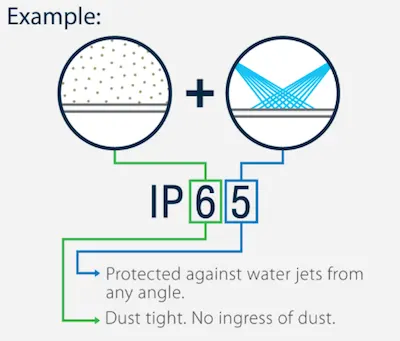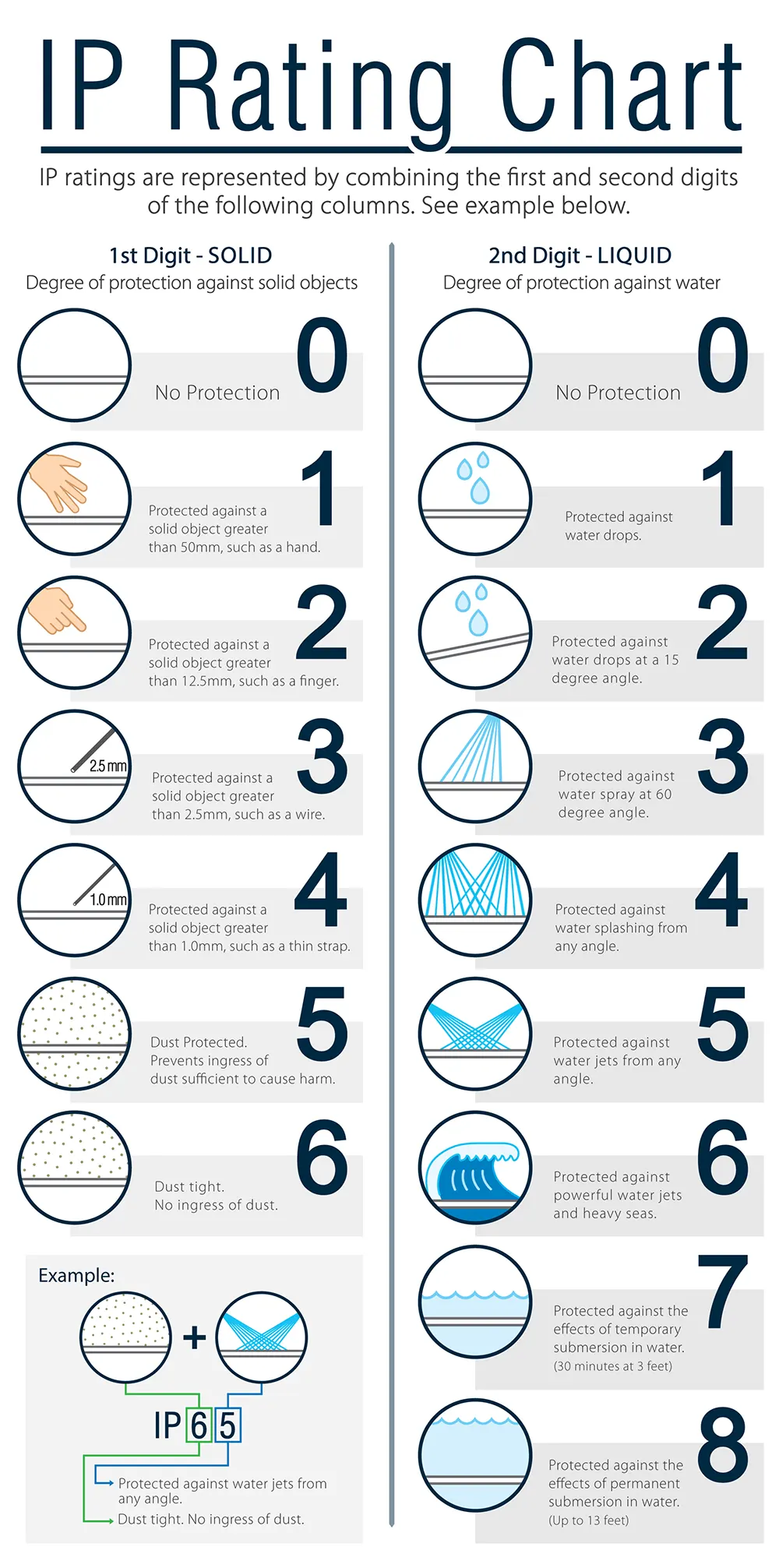What does IP represent?
IP is a phrase “Ingress Defense”. It is a measurement of the protection a thing will have against solid items (dirt, sand, dirt, and so on) and liquids.
An IP Rating is consisted of 2 numbers. The 1st number refers to the protection against solid objects (dust, and so on) and the 2nd number describes protectio against fluids.
What is an IP Rating?
Each IP Rating has 2 numbers, both of which give you information concerning the protection degree. A higher number implies greater protection against solids and also liquids.
– The 1st number (0-6) refers to the degree of protection versus solid objects and relocating parts, such as dirt, debris, or other solid things.
0: No Protection.
1: Protected against a solid object greater than 50mm, such as a hand.
2: Protected against a solid object greater than 12.5mm, such as a finger.
3: Protected against a solid object greater than 2.5mm, such as a wire.
4. Protected against a solid object greater than 1.0mm, such as a thin strap.
5. Dust protected. Prevents ingress of dust sufficient to cause harm.
6. Dust tight. No ingress of dust.
– The 2nd number (0-8) recommendations the degree of liquids and also moisture protection.
0: No Protection.
1: Protected against water drops.
2: Protected against water drops at a 15 degree angle.
3: Protected against water spray at a 60 degree angle.
4: Protected against water splashing from any angle.
5: Protected against water jets from any angle.
6: Protected against powerful water jets and heavy seas.
7: Protected against the effects of temporary submersion in water. (30 minutes at 3 feet)
8: Protected against the effects of permanent submersion in water. (Up to 13 feet)
Take a look at the chart listed below to much better recognize the protection offered with each number.
Example: With an IP65 rating, the LEDs can be utilized in an outdoors setup and also are water-resistant however they are not water-proof as well as are not appropriate to be submerged. An IP68 can be submerged in water.
What is the distinction between IP65, IP67 & IP68?
The differences in between generally marketed IP65, IP67, & IP68 strips are mild, but extremely essential. Using the above chart as an overview, we can see that all strips are protected at the highest level from solids and dust. The variations feature the protection against liquids.
IP65 = Water resistant. “Protected against water jets from any angle.” * Do NOT submerge IP65 LED lights, these are not water resistant.
IP67 = Water resistant plus. “Protected against the effects of temporary submersion in water. (30 minutes at 3 feet)” * Do NOT immerse IP67 LED lights for extensive periods, these are not waterproof.
IP68 = Waterproof “Protected against the effects of permanent submersion in water. (Up to 13 feet)”.
What IP Rating Will You Need?
If you don’t anticipate an extreme environment that is extremely messy or damp then a lower IP rating would be enough.
In places that will have a great deal of dirt, debris, or prospective to be touching any type of solids or fluids, you’ll intend to ensure that the IP ratings are high which you have ample water resistant or waterproof coating or sillicone tubes on your LED 스트립 조명.
Instances of IP Ratings and Applications.
Low IP ratings are appropriate for:
– Indoor usage.
– Safeguarded use inside sealed items.
– Inside sealed signage.
– When using aluminum extrusions.
High IP ratings are appropriate for:
– Unsealed outside locations.
– Places that have a great deal of particles.
– Locations with heavy foot traffic.
– High splash areas.
– High get in touch with locations (people touching them).
– Moisture places.
Ready to Obtain Your Projects Started?
Check our IP20 LED strip lights
If you want any of above IP20 LED strip lights to be IP65, IP67 or even IP68, you can contact our LED strip lights sales team and we will never let you down!



